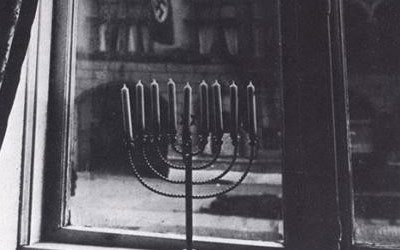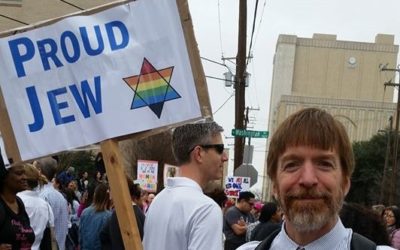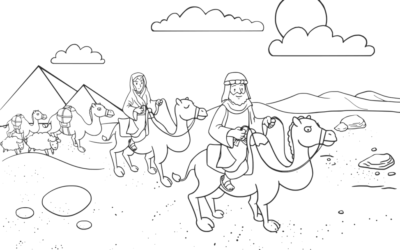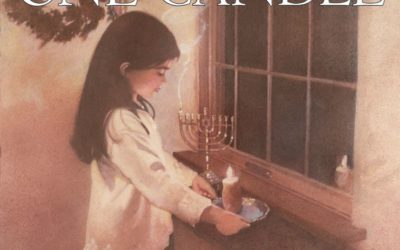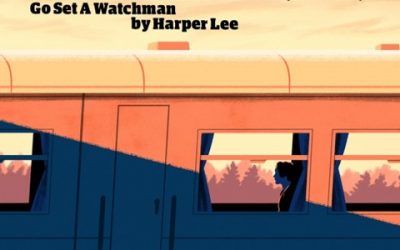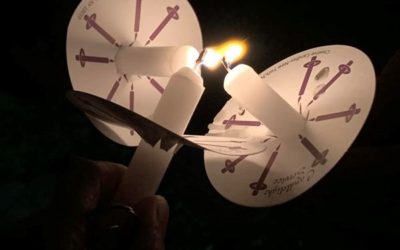Our Blog
What Chanukah teaches us about Holocaust Remembrance
As Chanukah reminds us, Jews are no strangers to persecution. We have been fighting for our right to exist since the beginning of our recorded history. As we say at Passover: “In every generation, there are those who wish to destroy us.” A list of those who’ve tried would be long: Pharaoh, Amalek, Nebuchadnezzar, Haman, Antiochus, Caesar, Torquemada, to name only some. [Redirects to the Times of Israel.]
Why I teach the Holocaust in Churches
Holocaust education needs to be different in a church than in a synagogue. Although we like to think of Christians and Jews as similar, there are fundamental differences in our background knowledge of and emotional connection to the basic elements of the story of the Holocaust. These fundamental differences change how the story is heard, and therefore, how the story should be told. [Redirects to the Times of Israel.]
Love is stronger than hate
In the shadow of the 80th anniversary of Kristallnacht[1], an attack on a synagogue is particularly chilling. But this was not Kristallnacht. When the Tree of Life synagogue in Pittsburgh was attacked, people from all over poured in to help. In fact, as overwhelming as the grief and fear of the shooting was, the love in response has been almost more so. [redirects to the Times of Israel]
What Chanukah teaches us about Holocaust Remembrance
As Chanukah reminds us, Jews are no strangers to persecution. We have been fighting for our right to exist since the beginning of our recorded history. As we say at Passover: “In every generation, there are those who wish to destroy us.” A list of those who’ve tried would be long: Pharaoh, Amalek, Nebuchadnezzar, Haman, Antiochus, Caesar, Torquemada, to name only some. [Redirects to the Times of Israel.]
Why I teach the Holocaust in Churches
Holocaust education needs to be different in a church than in a synagogue. Although we like to think of Christians and Jews as similar, there are fundamental differences in our background knowledge of and emotional connection to the basic elements of the story of the Holocaust. These fundamental differences change how the story is heard, and therefore, how the story should be told. [Redirects to the Times of Israel.]
Love is stronger than hate
In the shadow of the 80th anniversary of Kristallnacht[1], an attack on a synagogue is particularly chilling. But this was not Kristallnacht. When the Tree of Life synagogue in Pittsburgh was attacked, people from all over poured in to help. In fact, as overwhelming as the grief and fear of the shooting was, the love in response has been almost more so. [redirects to the Times of Israel]
Lessons of the Holocaust: Lock the door or welcome the stranger?
“Why do we need to teach the Holocaust?” This week, as we mark the first yahrzeit of the eleven people murdered at the Tree of Life Synagogue in Pittsburgh, I want to explore this question from a different angle, an angle of hopeful action. [Redirects to the Times of Israel]
Can we just color camels? Do we need to teach the hard stuff?
Can’t religious school be just about coloring camels from Torah portions? Do we have to teach the hard stuff? Many religious school education directors have fielded questions along these lines from concerned parents.
In classic Jewish fashion, the best answer is another question: How do we want our children to learn about the Holocaust? [redirects to the Times of Israel]
How to talk to your kids about the Holocaust
“Mom, what do you know about the Holocaust?” You swallow, take a deep breath, play for time, your mind racing. “They’re not old enough to know about this,” you think to yourself frantically. “Can’t I hold on to their innocence just a little bit longer?” They’ll never be old enough. No one is old enough to really deal with the atrocities of the world. I know I’m not. But ignoring evil does not make it go away. Ignoring evil gives it space to grow. We must face evil, and we must help our children to face it. [redirects to the Times of Israel.]
Did you know (that was happening)?
Recent events have made me realize that the question “Did you know?” can be more complicated than it sounds. The story of Brett Kavanagh and Christine Blasey Ford hits close to home for me, literally. I grew up in Bethesda, Maryland. In 1982, when Christine Blasey was attending the Holton-Arms School, I was attending a public middle school a mile and a half away. [Redirects to the Times of Israel.]
For Yom Kippur: Go Set a Watchman
For the sin we have committed against You by running away from the chance to do good in order to make our lives easier. “I can’t live in a place that I don’t agree with and that doesn’t agree with me.” How many of us have had such a thought? How many of us live in neighborhoods of agreement? How many of us safely stay in our like-minded bubbles to avoid conversational conflict? [Redirects to the Times of Israel]
The fragile window is closing: Now WE must tell their stories
“Why do we need to teach this at all?” The Holocaust, she meant. Why do we need to teach the Holocaust in our religious school? [Redirects to the Times of Israel.]
‘Never Again’ means ‘Not Now!’
Have we built concentration camps on our border? As a Holocaust educator, I get asked this question a lot. It’s the wrong question. Asking whether they are concentration camps pushes us into extreme language that blocks conversation. [Redirects to the Times of Israel]
Subscribe for More Great Articles!
Join our mailing list to get notified about new blogs and upcoming events.

